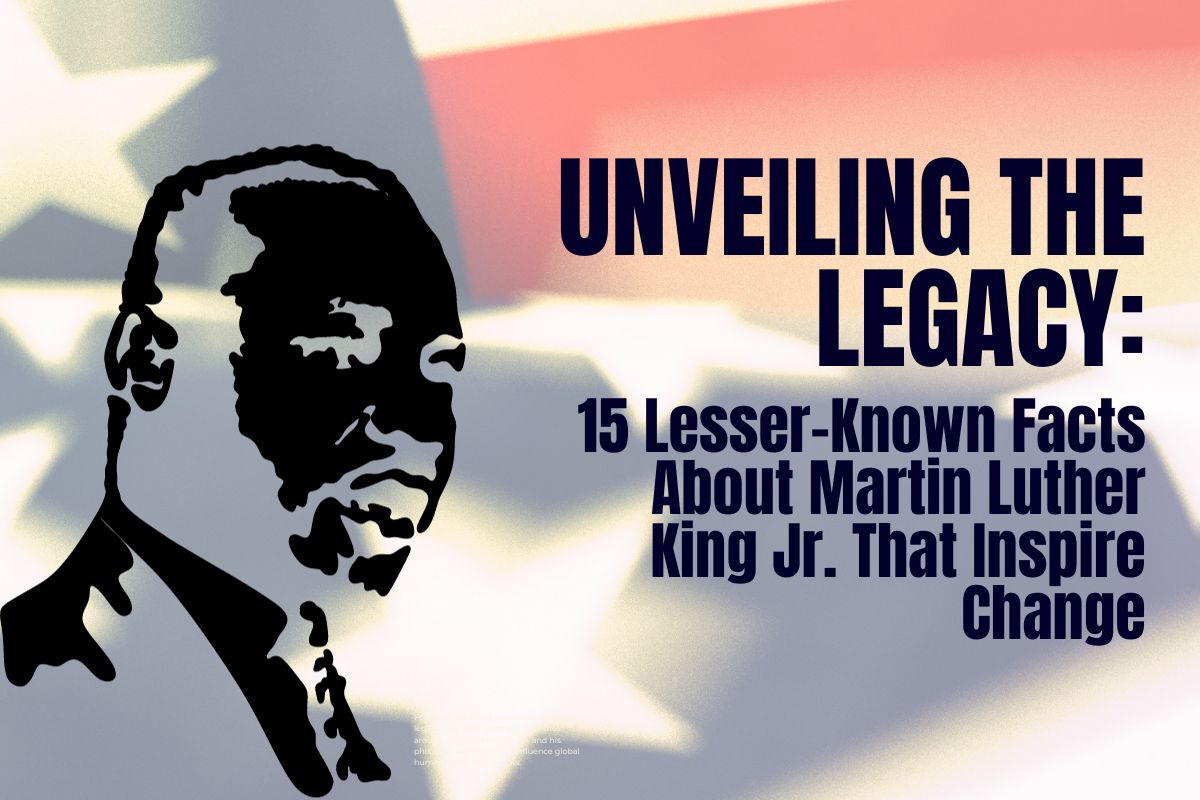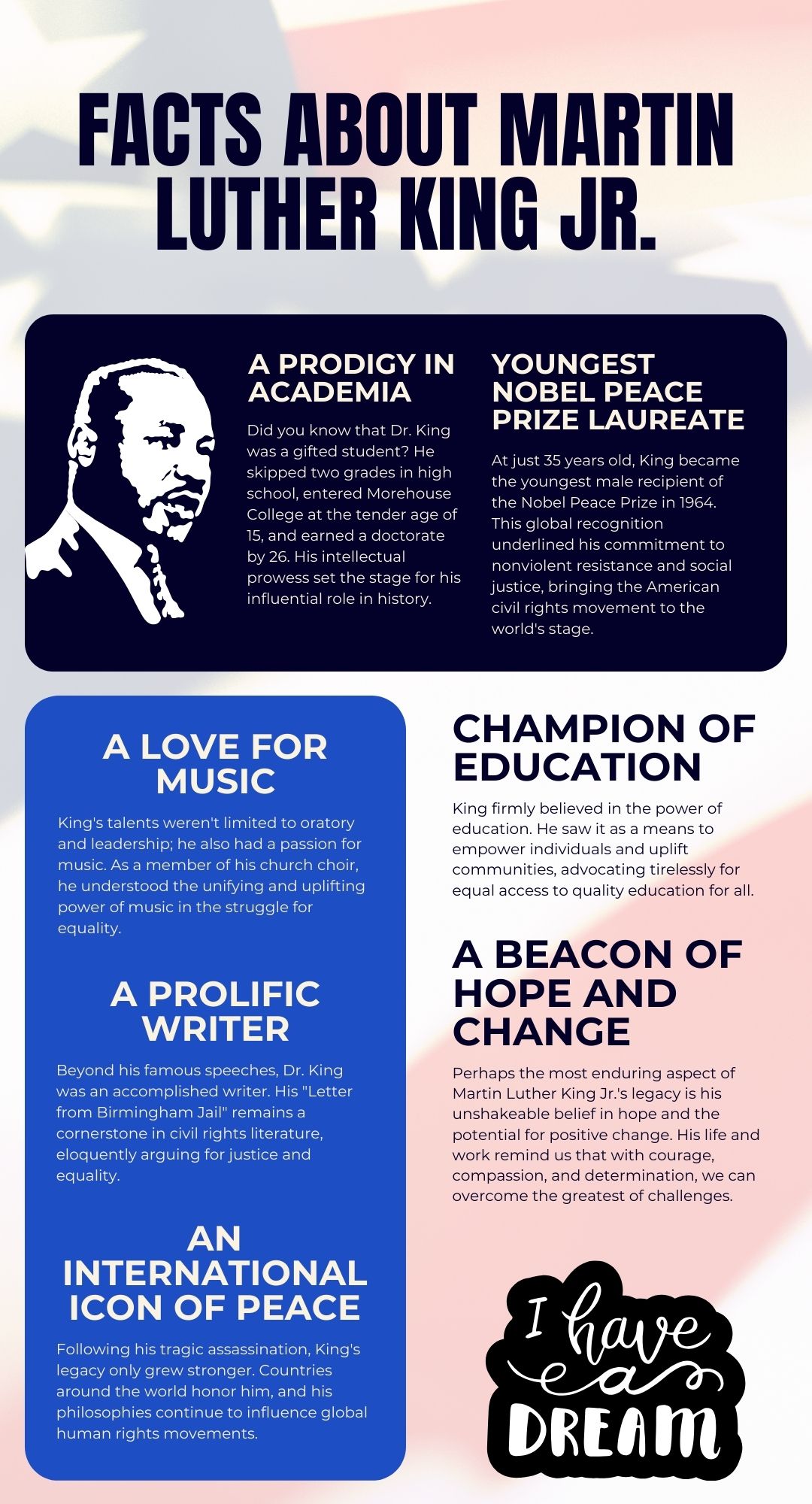Let’s discover the lesser-known facets of Martin Luther King Jr.’s remarkable life and explore the inspiring details that shaped this iconic figure and continue to fuel the flames of change.
1. A Trailblazing Scholar from the Start
From a young age, King exhibited exceptional intellect. Skipping two grades in high school, he entered college at just 15. By 19, he held a bachelor’s degree, and remarkably, he earned a Ph.D. by the age of 26. This academic foundation laid the groundwork for the profound ideas expressed in his iconic speech.
2. Gandhi’s Influence on the Path of Nonviolent Resistance
Deeply inspired by Mahatma Gandhi, King adopted the principles of nonviolent resistance as a radical approach to the pervasive racial violence in the U.S. This philosophy became a guiding force in the civil rights movement, shaping the dreams he eloquently articulated.
3. Nobel Laureate at 35
In 1964, King received the Nobel Peace Prize at the age of 35, becoming the youngest male recipient at the time. This prestigious accolade catapulted the civil rights movement onto the international stage, giving global resonance to the dream he envisioned.
4. The Harmonious Notes of a Musician
Beyond his role as an orator, King had a deep affinity for music. He actively participated in his church choir, recognizing the profound impact of music in fostering social change. This lesser-known passion added another dimension to his multifaceted personality, infusing his speeches with a rhythm that resonated with audiences.
5. A Literary Legacy Beyond Speeches
In addition to his renowned speeches, King was a prolific writer. His “Letter from Birmingham Jail” is a seminal work that articulates his philosophy of nonviolence and justice, showcasing his intellectual depth and commitment to the cause. This literary legacy enriched the narrative of his dream.
6. The Shadows of FBI Surveillance
King’s influence made him a target of extensive FBI surveillance under J. Edgar Hoover’s watch. Labeled a potential threat due to his perceived communist connections, King faced harassment as part of the controversial COINTELPRO project. Yet, he continued to pursue his dream undeterred.
7. Posthumous Honors and Recognition
Even after his tragic assassination in 1968, King’s impact continued to grow. The U.S. holiday in his honor was established in 1986, and his memory has been immortalized worldwide through various tributes and memorials. The dream lives on, inspiring generations to fight for justice.
8. Advocate for Education Equality
Beyond civil rights, King was a staunch advocate for the right to a quality education. He believed in its pivotal role in personal and societal growth, emphasizing its importance in the pursuit of justice—a dream that extended beyond racial equality.
“I Have a Dream” was not just a speech; it was a call to action, a vision of a better world that reverberates through time. Click here to explore the profound impact of a dream that transcends generations, leaving an indelible mark on the fight for civil rights and justice.

